Iran warns of spread of Israeli war beyond West Asia
Iranian Foreign Minister Abbas Araghchi has warned that the drastic consequences of Israel’s brutal aggression on the Gaza Strip and southern Lebanon would not be confined to West Asia and could spill over far beyond the strategic region.
Araghchi was speaking at an international summit, titled ‘Nasrallah’s School of Thought’, which was held in commemoration of the 40th day of Hezbollah leader Sayyed Hassan Nasrallah’s martyrdom and attended by a host of Iran’s top political officials as well as foreign experts in the capital Tehran on Saturday.
“The usurping, apartheid and child-killing Zionist regime, rejecting all plans and proposals to establish a ceasefire in Gaza and Lebanon, presses ahead with its crimes in Palestine and Lebanon, and regrettably, the international community has been unable to stop the Zionist genocide or is only watching Zionist warmongering and their efforts to make the entire region unsafe,” Araghchi said.
“The world should know that if the war expands, its harmful effects will not be limited only to the West Asia region; insecurity and instability is something that can spread to other areas, even far away.”
The top Iranian diplomat said the implementation of a fair ceasefire in Gaza and Lebanon should be the “priority” of the international community, stressing that the Islamic Republic has not stinted on any efforts in this regard.
“In the current situation, the responsibility of the international community vis-à-vis these crises is more than ever. The United Nations and other international institutions must fulfill their duties in maintaining international peace and security by adopting impartial and justice-based approaches,” he added.
Araghchi praised Nasrallah as a symbol of resistance, courage and standing against oppression and aggression not only for Lebanon but also for the Muslim world and all freedom-seeking nations.
“Sayyed Hassan Nasrallah always believed that ignoring the Zionist regime’s crimes undermine the foundations of international justice and, therefore, emphasized the importance of multilateralism and cooperation among countries to deal with these crises,” he said.
The Iranian foreign minister raised the alarm that the Israeli regime has launched a hybrid war against Lebanon, involving military, intelligence and media tools, and even by creating sedition among Muslims, and between Muslims and Christians.
“It is only the internal solidarity of Muslim nations and the strengthening of regional cooperation that can protect the resistance front from the enemies,” Araghchi said. “Lebanon, with its cultural and religious diversity, exemplifies a society that is able to withstand challenges only by relying on national unity.”
Hezbollah has conducted hundreds of strikes against the Israeli-occupied territories since last October, when the regime launched a genocidal war on Gaza and markedly intensified its deadly aggression against Lebanon.
The brutal military onslaught has so far claimed the lives of more than 43,000 Palestinians, mostly women and children, while the escalation against Lebanon has killed upwards of 3,000 people.
The Lebanese resistance movement has vowed to sustain its strikes on the Israeli-occupied territories as long as the regime keeps the escalation in southern Lebanon and the war on Gaza.
ICC arrest warrants for Netanyahu, Gallant: A watershed moment in intl. justice
VIDEO | Pro-Palestine solidarity campaigns facing repression in India
Iranian Navy to take delivery of new homegrown submarines soon: Cmdr.
Iraq sends letters to regional, intl. organizations over Israeli threats
VIDEO | Press TV's news headlines
ICC trial of Netanyahu, Gallant would be ‘huge step’ for intl. justice: Legal scholar
Iran, Saudi Arabia determined to establish endurable peace: Deputy FM
Humans of Gaza: 33-year-old footballer Ramzi Al-Safadi killed with brother


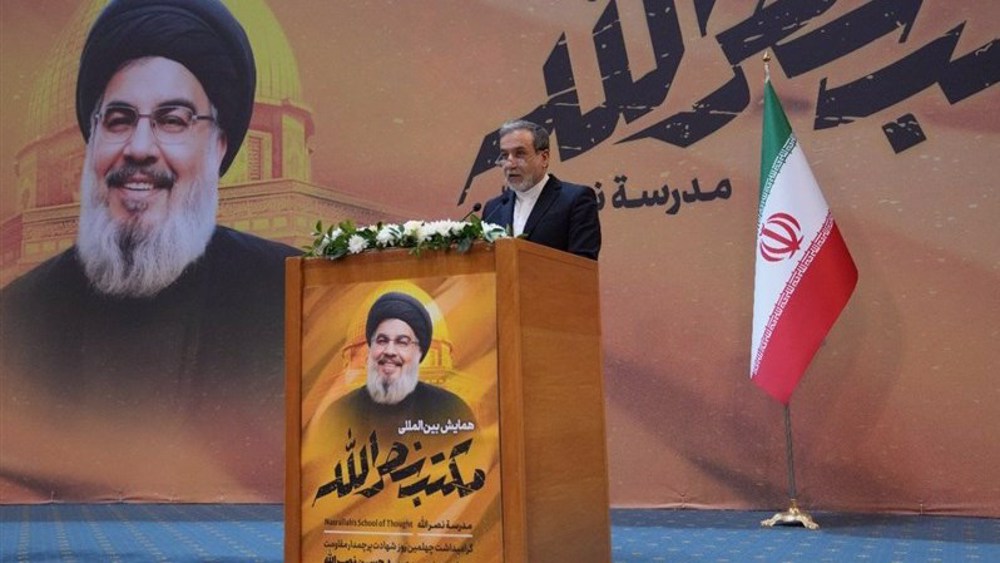
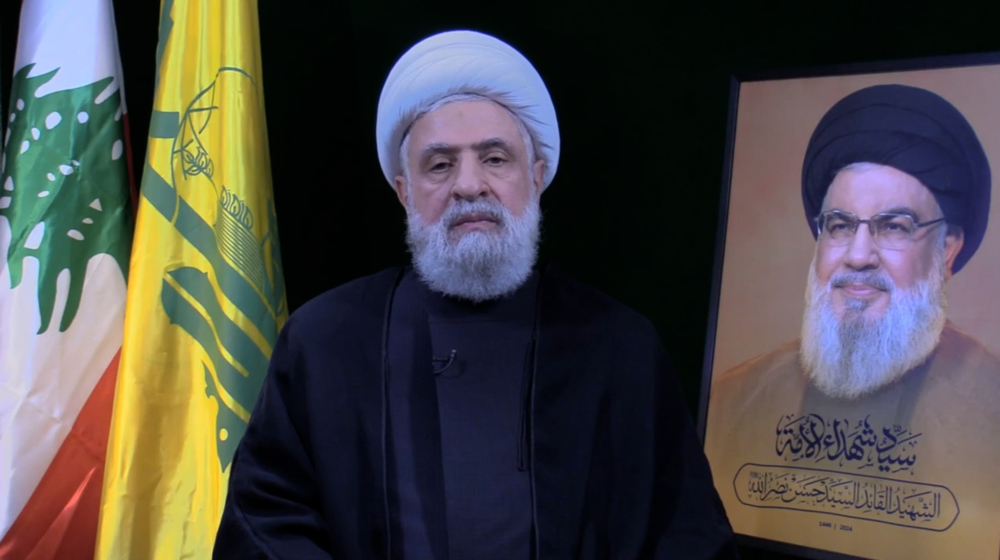
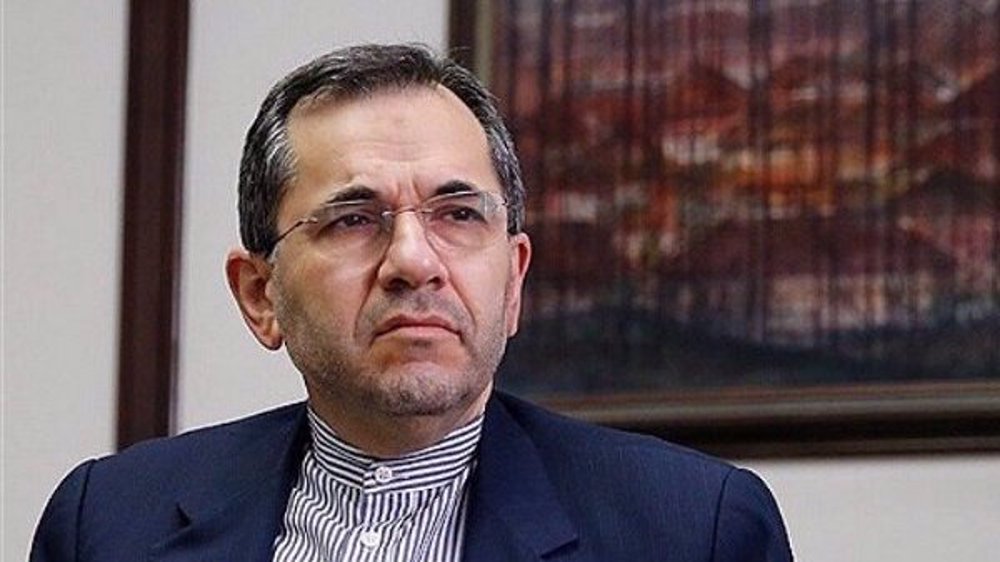
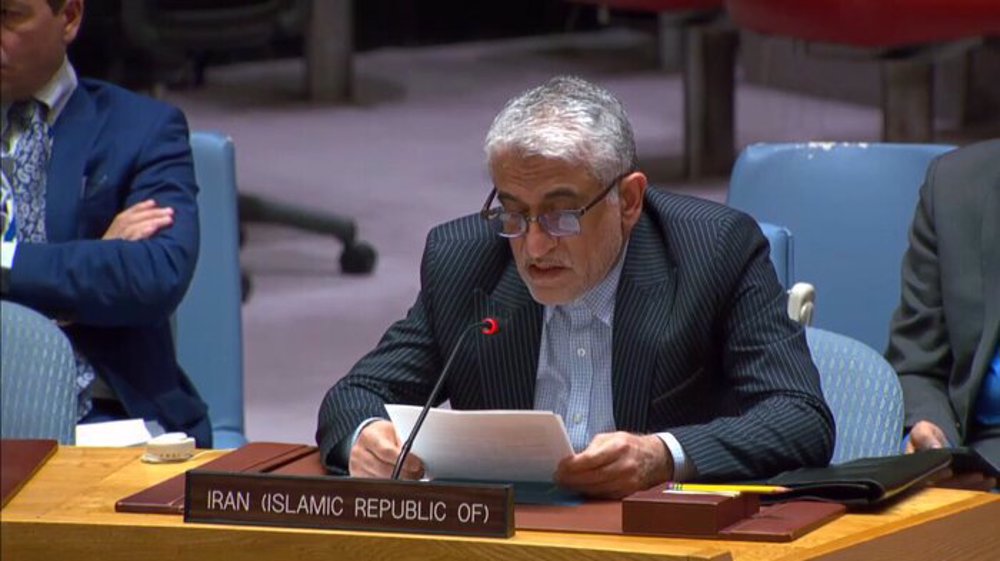
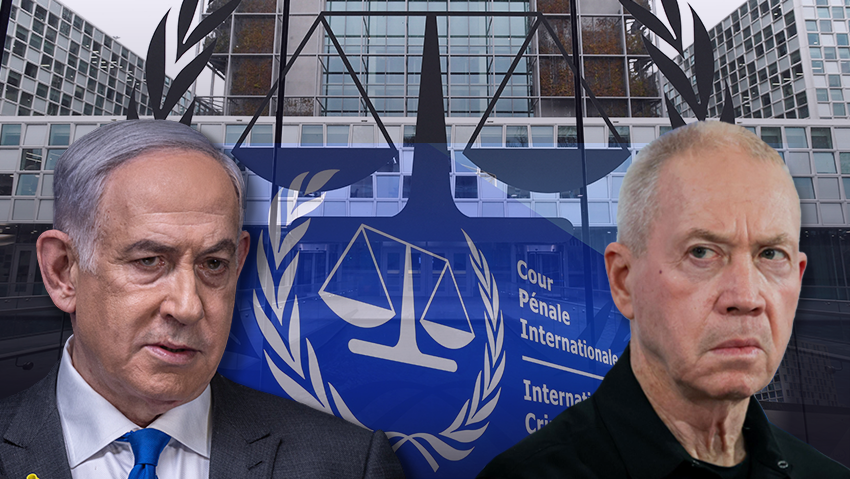




 This makes it easy to access the Press TV website
This makes it easy to access the Press TV website